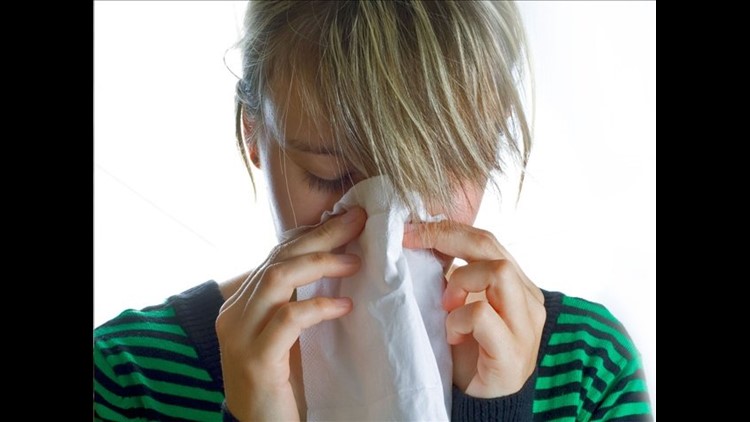(CNN) — To help prevent your child from having to seek care for influenza or a similar illness, here are some tips to keep in mind:
1. Make sure your child gets this season’s flu vaccine.
While the vaccine cannot completely prevent children from getting the flu (it’s about 62% effective, according to the latest numbers from the Centers for Disease Control and Prevention), it can shorten the illness if they do get sick and keep symptoms milder.
2. Practice good cough etiquette and social distancing.
Flu germs can spread up to 6 feet through coughs and sneezes, so teach children to cover their mouth and nose with a tissue and to throw away the tissue. Make sure to clean their hands afterward!
Also, keep your kids home if they are sick (and discourage sick kids from visiting). This may mean canceling play dates or postponing birthday parties. If possible, ask teachers to keep desks in the classroom separated rather than pushing them together to form larger tables.
Keep sick children in their own room, or if the rest of the family is already sick, “quarantine” children without symptoms to keep them away from the flu virus.
If flu is hitting your community hard, consider avoiding large crowds (such as going to movies or out to dinner) until things settle down.
3. Keep hands and shared objects/surfaces clean.
This is the most important time of year for hand-washing. Teach kids to their wash hands for at least 20 seconds — or about the time it takes to sing the “Happy Birthday” song.
Flu viruses can live up to 8 hours on surfaces, so try to remove germs from toys, handles, counters, tables, phones, TV remotes, etc. using hot soapy water or a cleaning product that removes influenza. The EPA has a list of disinfectants that are effective against the flu.
4. Stay healthy.
The usual good health practices still apply during cold and flu season; good nutrition, moderate exercise and adequate rest help optimize the immune system.
Offer your child a well-balanced diet including fruits, vegetables, milk and water. Make sure your child gets plenty of sleep (at least 10 hours for school-age children and 12 hours for toddlers). Encourage at least one hour of physical activity on most days of the week.
5. For kids with flu, treat the symptoms and keep them comfortable.
Home remedies should include rest and plenty of fluids. Offer your child honey for the cough (for kids over 1 year, it’s a good cough suppressant without potential side effects), medicated chest rubs for cough/congestion, a humidifier/vaporizer, and saline nose drops.
Fever reducers such as acetaminophen (Tylenol) or ibuprofen (Advil and Motrin) can help, but remember to avoid aspirin, which can cause a serious illness called Reye Syndrome in children with a viral illness.
An antiviral medicine like Tamiflu or Relenza may be prescribed for certain patients within the first 48 hours of the illness; the medication can shorten the symptoms and severity of the flu as well as the child’s contagiousness.
Most healthy kids over 2 years old get better within a few days without any antiviral medicine. Just be sure to watch out for worsening fever or cough, as this may be a sign of a complication such as pneumonia.



